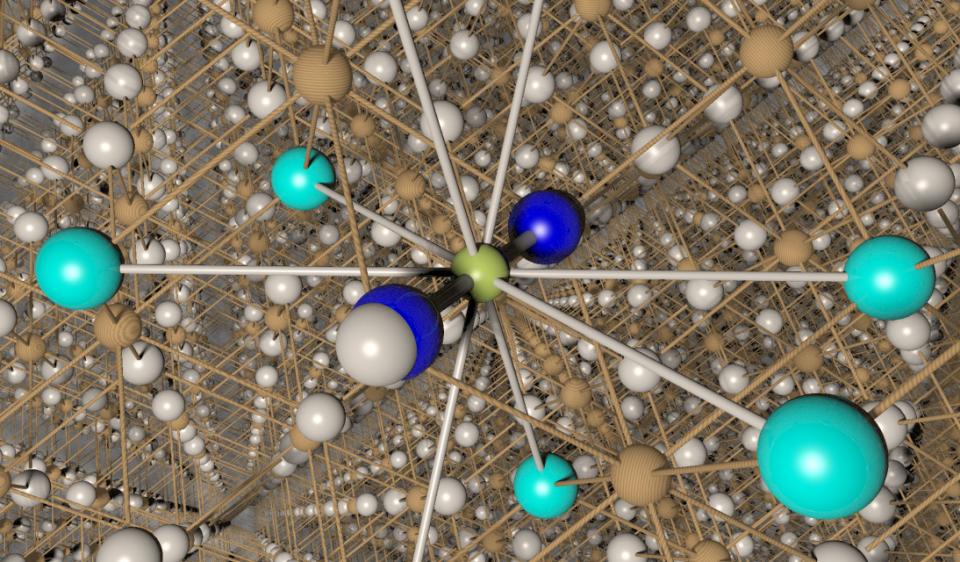We have observed the decoherence process that occurs within quantum mechanical systems. Despite the many potential advantages of quantum computation, the integrity of any quantum mechanical system is vulnerable to interactions with its environment which cause any stored information to be slowly lost – decoherence. An interesting realisation of decoherence occurs when a spin-polarised muon is implanted inside a crystal of an inorganic fluoride. The positively-charged muon nestles between two negatively-charged fluoride ions, pulling them towards itself, creating an interacting bound F-μ-F unit, with the spins of the muon and the two fluorine nuclei embodying a coherently evolving quantum system. Weak interactions between this 'system' and its 'environment' (all other fluoride ions in the crystal) decohere the quantum information stored in the muon, degrading it irreversibly. This process can be followed by watching the quantum interference oscillations in the muon spin polarisation as a function of time. We describe how the degrading of quantum information can be understood by calculating the entropy in the entangled muon and fluorine spins, though an exact description is prevented by the size of the Hilbert space of the environment. Nevertheless, a method has been developed to describe the decohering effect of the environment in detail by renormalizing the coupling to the nearby shell of fluorine ions by a factor that includes the sum of the contributions of all nuclei in the crystal, providing excellent agreement with the new high-statistics experimental data.
Information and decoherence in a muon-fluorine coupled system, J. M. Wilkinson and S. J. Blundell,
Phys. Rev. Lett. 125, 087201 (2020) (Editors’ suggestion)

